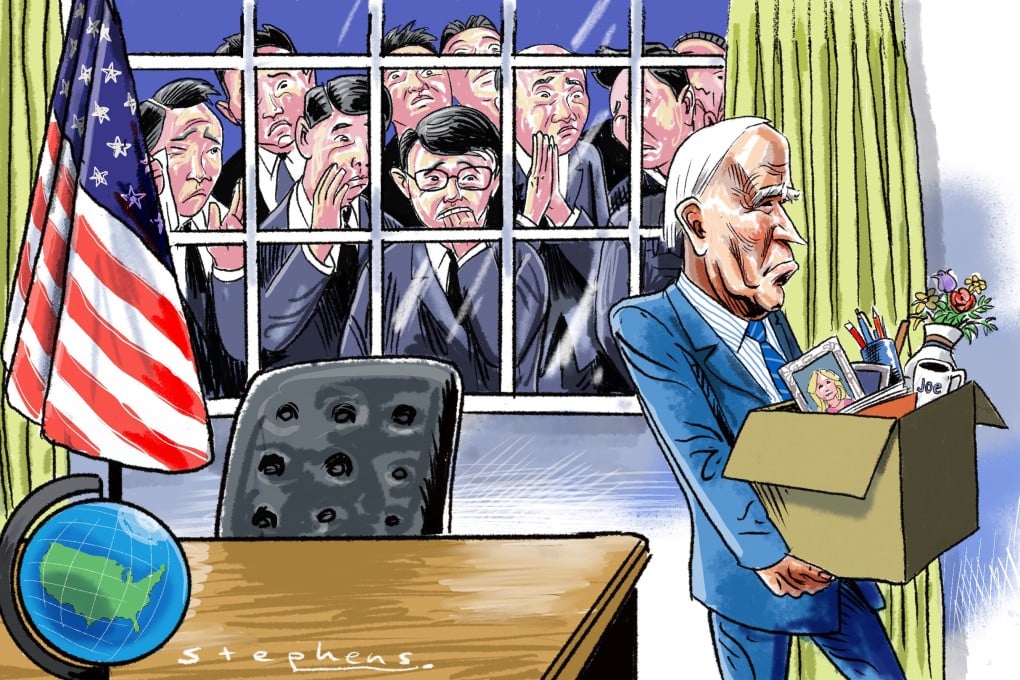Advertisement
Opinion | The world will look back on US foreign policy under Biden with nostalgia
- Whether Trump or Harris wins, Biden’s departure will mark the end of an era of distinctly multilateral American leadership
Reading Time:3 minutes
Why you can trust SCMP
15

“I revere this office, but I love my country more,” said outgoing US President Joe Biden after abandoning his re-election bid. “So I’ve decided the best way forward is to pass the torch to a new generation. That’s the best way to unite our nation.”
Advertisement
No rivals were named but Biden made clear his excruciating decision was part of a bigger struggle to prevent Donald Trump’s return to the White House. His decision was a relief for many Americans, including fellow Democrats and long-time political allies, who believe he was too old and frail to prevent a second Trump presidency.
Biden’s departure, however, also marks the end of an era of distinctly multilateral American leadership. Whoever wins this year, America’s foreign policy will increasingly be shaped by some element of protectionism and unilateralism, if not nativism. Even its closest allies in Asia should quietly prepare for the worst.
Despite their radical differences, both the Obama and Trump administrations represented major disruptions in American foreign policy. The former embraced a post-racial and broadly pacifist global vision, which encouraged some allies but also emboldened rivals, who exploited Obama’s aversion to conflict.
Advertisement
Trump further weakened America’s position in Asia by jettisoning the Trans-Pacific Partnership, imposing tariffs on both allies and rivals, and embracing an unabashedly amoral and transactional foreign policy, which sapped Washington’s strategic capital.

Advertisement
